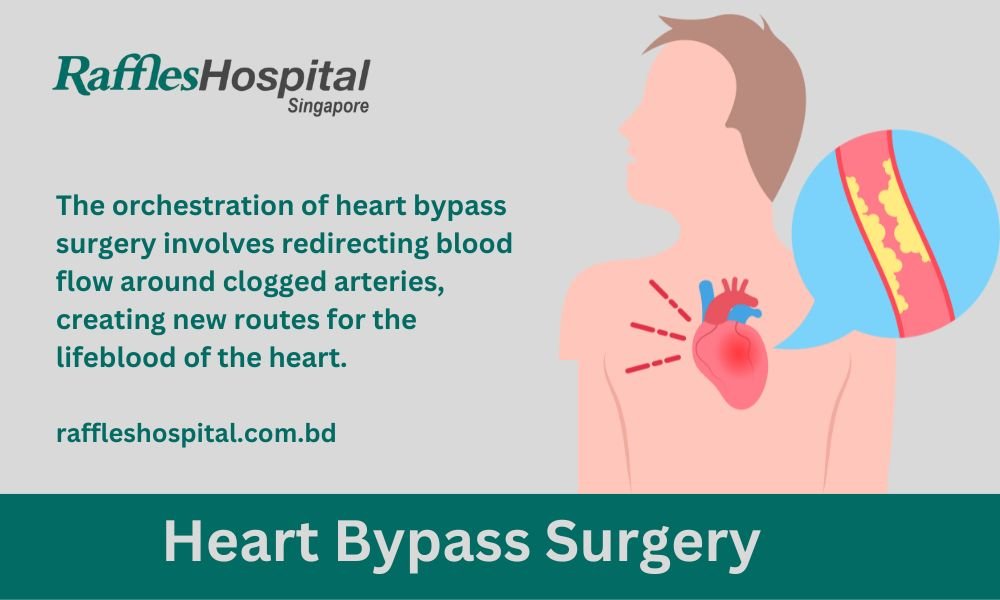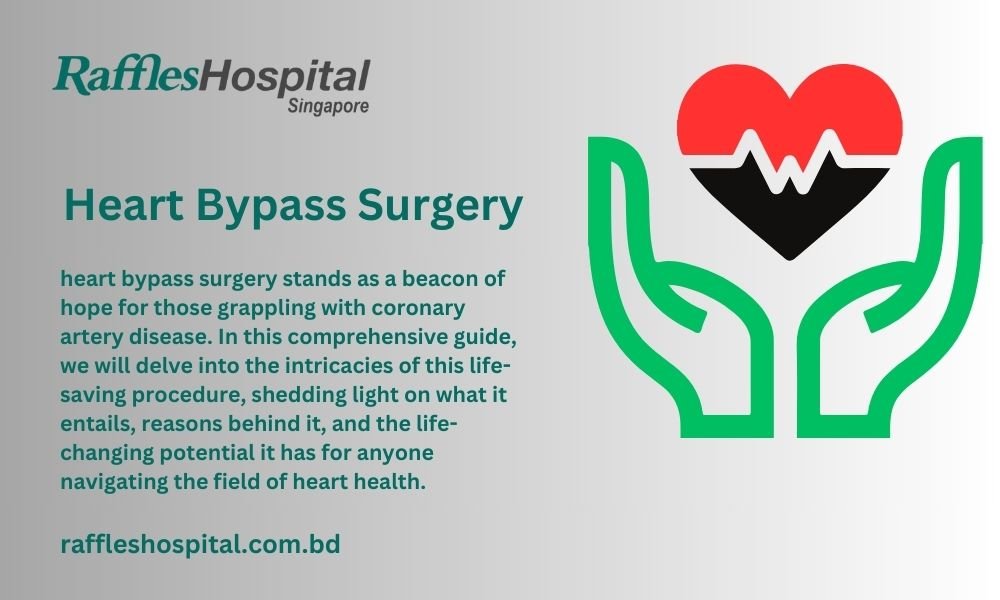When it comes to matters of the heart, both metaphorical and literal, heart bypass surgery stands as a beacon of hope for those grappling with coronary artery disease. In this comprehensive guide, we will delve into the intricacies of this life-saving procedure, shedding light on what it entails, reasons behind it, and the life-changing potential it has for anyone navigating the field of heart health.
Understanding the Need for Heart Bypass Surgery
Coronary artery disease, a common ailment, occurs when blood vessels supplying the heart become narrowed or blocked, hampering blood flow. Heart bypass surgery, a surgical intervention, aims to create new pathways for blood to reach the heart muscle. This becomes imperative when the existing pathways face significant blockages, preventing adequate oxygen and nutrients from reaching the heart.
How Heart Bypass Surgery Works
The orchestration of heart bypass surgery involves redirecting blood flow around clogged arteries, creating new routes for the lifeblood of the heart. Surgeons utilize blood vessels from other parts of the body, often the leg or chest, to construct these detours. By doing so, they circumvent the obstacles posed by narrowed or blocked arteries, ensuring a renewed and robust blood supply to the heart muscle.

Heart Bypass Surgery
The Heart Bypass Surgery Procedure
The stage is set in the operating room, where skilled surgeons take the reins. Anesthesia ushers patients into a state of deep slumber, ensuring a pain-free experience. A small incision is made, allowing access to blood vessels. These vessels are meticulously connected, creating the bypass that circumvents the blockages. The heart is temporarily stopped, and a heart-lung machine takes over, maintaining blood circulation throughout the procedure. Once the bypass is complete, the heart resumes its natural rhythm, infused with the vitality of improved blood flow.
Recovery and Embracing a New Lease on Life
Post-surgery, a transformative journey unfolds. The road to recovery involves a vigilant monitoring of vital signs and gradual reintegration into daily activities. While rest is paramount initially, a gradual return to light exercises under medical guidance sets the stage for renewed strength. With each passing day, individuals discover a newfound vitality, liberated from the constraints of compromised blood flow.
Benefits and Lifestyle Changes After Heart Bypass Surgery
The aftermath of heart bypass surgery unveils a tapestry of benefits. Improved blood flow translates into enhanced energy levels, reduced chest pain, and an overall revitalization of health. Lifestyle changes become instrumental in sustaining these benefits, with a heart-healthy diet, regular exercise, and stress management taking center stage in the journey towards enduring heart health.
Choosing the Right Path: Consultation and Decision-Making
The decision to undergo heart bypass surgery involves a collaborative effort between patients and healthcare professionals. A thorough consultation, including discussions about the severity of coronary artery disease, overall health, and potential risks, guides the decision-making process. Informed choices become the cornerstone of a successful journey through heart bypass surgery.

Heart Bypass Surgery
Caring for Your Heart Post-Bypass
Post-surgery, ongoing care becomes a partnership between individuals and healthcare providers. Regular check-ups, adherence to prescribed medications, and continued lifestyle modifications ensure the longevity of the benefits derived from heart bypass surgery. Monitoring and managing risk factors contribute to the maintenance of optimal heart health.
Costs and Insurance Coverage
Navigating the financial landscape of heart bypass surgery can be complex. Insurance coverage often plays a pivotal role, but understanding the specifics is crucial. Engaging with financial counselors within healthcare facilities provides clarity on costs and potential avenues for financial support.
Conclusion: A Heart Reborn and Ready
As we conclude this journey through the realms of heart bypass surgery, the resounding theme is one of renewal and readiness. A procedure once shrouded in the unknown emerges as a transformative force, breathing vitality into hearts burdened by coronary artery disease. With each beat, the heart echoes a symphony of resilience and renewed vigor. Heart bypass surgery becomes not merely a medical intervention but a testament to the indomitable spirit of life, pulsating with the promise of a heart reborn and ready for the chapters yet to unfold.
Common Concerns and FAQs about Heart Bypass Surgery
Q: Is heart bypass surgery (HBS) a risky procedure?
A: While all surgeries carry some degree of risk, HBS is generally considered safe, with advancements in medical technology minimizing potential complications.
Q: How long does it take to recover from HBS?
A: Recovery times vary, but most individuals can resume normal activities within a few weeks to months, depending on individual health and adherence to post-operative guidelines.
Q: Will I need to make lifestyle changes after HBS?
A: Yes, adopting heart-healthy habits is crucial post-surgery. This may include dietary adjustments, regular exercise, and managing stress to maintain long-term heart health.
Q: Can HBS cure coronary artery disease completely?
A: While heart bypass surgery can significantly improve blood flow to the heart, it is not a cure for coronary artery disease. Lifestyle changes and ongoing medical management remain essential.

